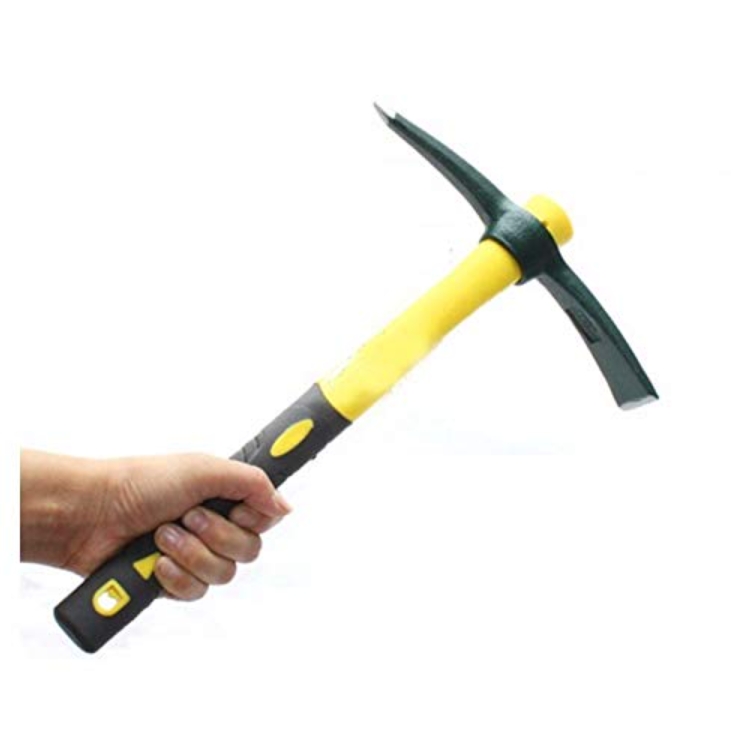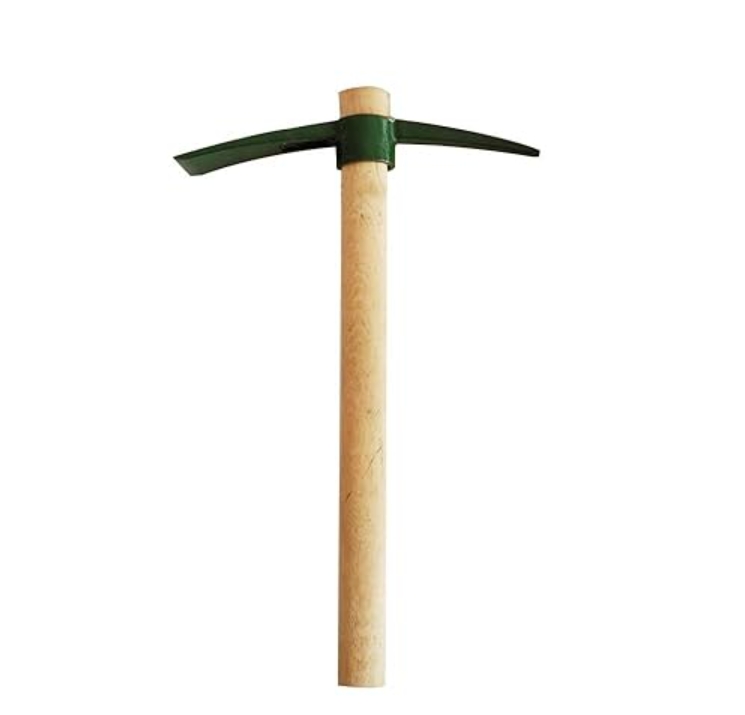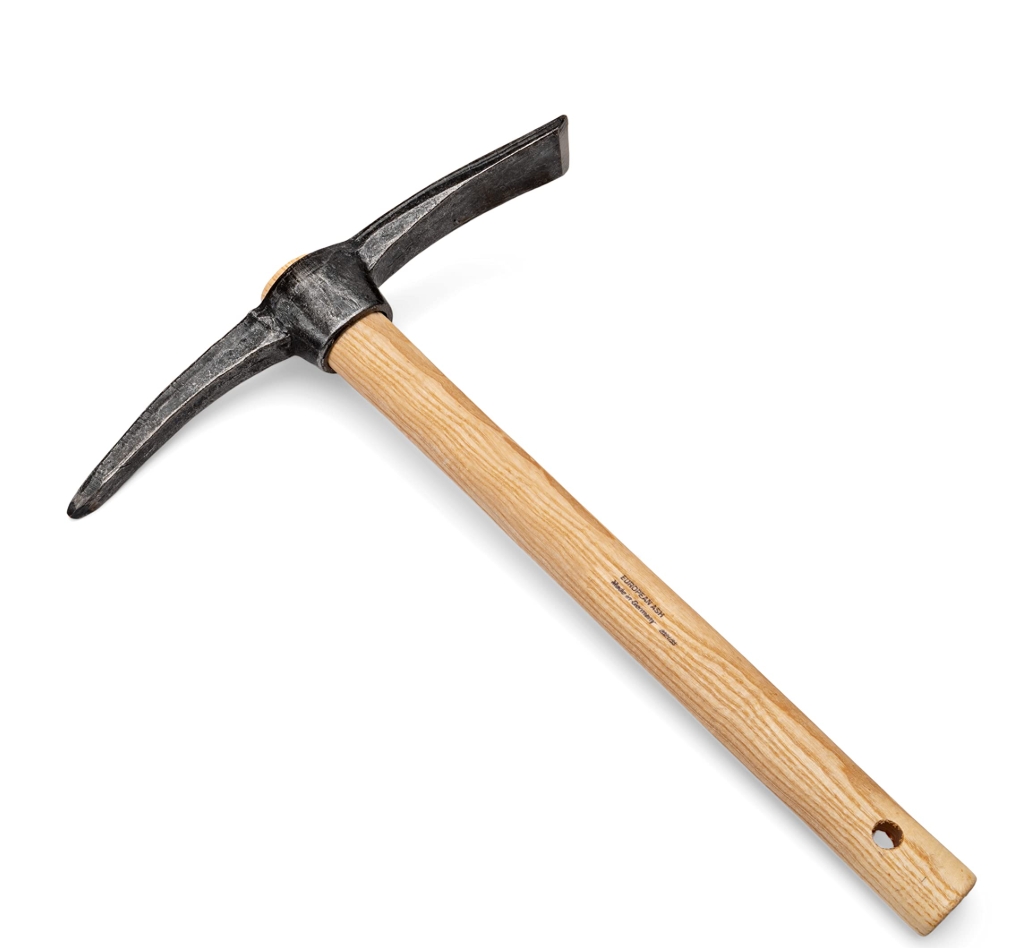News
Across the vast rural and peri-urban areas of Africa, the small pickaxe serves as an indispensable and highly efficient tool in both gardening and agricultural work. With its compact design and powerful functionality, the small pickaxe helps farmers easily accomplish soil loosening, digging, and weed clearing tasks, significantly boosting productivity. This tool’s durability makes it particularly suited for many African regions, where soil tends to be hard and rocky.
Typically constructed from high-strength steel and featuring an ergonomically designed handle, the small pickaxe tool ensures users can apply ample force without excessive fatigue. Its dual-head design—with one pointed end for penetrating tough soil and a flat, blunt end for removing debris—makes it a versatile tool. For African farmers, the small pickaxe not only handles heavy-duty fieldwork but also supports landscaping and home garden maintenance.
Furthermore, its compact size allows for easy transport and storage, making it highly practical for flexible use in narrow plots or remote outdoor sites. Understanding the fundamental structure and multifunctional nature of the small pickaxe is essential for beginners aiming to select and utilize the right tool, laying a solid foundation for effective purchasing decisions.

Africa’s vast and diverse geography presents a wide range of soil types—from red clay and sandy soils to heavy loam—making it crucial to select a small garden pickaxe tailored to specific soil conditions and usage demands. Choosing the right small garden pickaxe is key to ensuring efficient and effortless agricultural work.
Firstly, the hardness and wear resistance of the pickaxe head material are critical factors. African soils often contain many stones, and pickaxes made of low-quality steel are prone to deformation or breakage. Therefore, pickaxe heads manufactured from high-quality carbon steel or alloy steel guarantee tool longevity. Secondly, the handle material significantly affects user comfort and safety. Handles made from rubber or wood provide effective shock absorption, reducing hand fatigue and blisters during prolonged use.
Moreover, the weight and size of the small garden pickaxe price should match the user’s physical build and task requirements. For beginners and female users, lightweight models offer better control and minimize injury risks. Conversely, for larger plots or harder soils, moderately weighted and sturdy designs ensure strong soil penetration and durability.
Additionally, the African market values multifunctional tools capable of digging, breaking, and clearing weeds. When selecting a small garden pickaxe, attention should be paid to the blade design’s suitability for local farming practices. By considering soil type, frequency of use, and tool versatility, users can significantly enhance agricultural productivity.

Given Africa’s diverse and often harsh climate, proper maintenance of the small hand pickaxe is essential to extend tool lifespan, ensure safety, and maintain work efficiency. Whether facing heat, humidity, or dusty conditions, appropriate care is indispensable.
First, after each use, it is important to promptly clean soil and debris from the tool’s surface. Rinsing with water and thoroughly drying helps prevent corrosion. For long-term storage, applying a layer of anti-rust oil or lubricant to the metal parts can effectively prevent oxidation. The handle also requires attention: wooden handles benefit from periodic application of wood oil to prevent cracking, while rubber handles should be kept clean to maintain grip.
Furthermore, blade dullness directly impacts performance, so regular sharpening with a whetstone or sandpaper is recommended. Maintaining the original sharpening angle is crucial to preserve tool efficiency. Since African soils often contain gravel and stones, frequent inspection of the blade for cracks or deformation is necessary. Any defects should be repaired or replaced promptly.
Lastly, proper storage conditions are key. Avoid exposing the small hand best pickaxe to moisture or direct sunlight; instead, store it in a well-ventilated, dry place. Consistent maintenance not only prolongs tool life but also reduces downtime caused by tool failure, ensuring stable productivity for African farmers and gardeners.

As a specialized manufacturer of agricultural tools, our company is dedicated to supplying high-quality small pickaxe and small garden pickaxe products tailored to the African market. Combining local soil characteristics and user needs, we have developed a product line that boasts strong adaptability and outstanding performance. With over 30 years of experience in research, development, and manufacturing, we fully understand the core demands of African farmers for durability, ease of use, and cost-effectiveness.
Our small pickaxes are made from high-carbon steel and undergo heat treatment processes to ensure hardness and wear resistance, suitable for Africa’s varied soil types. The handles are ergonomically designed using anti-slip rubber or premium wood to provide a firm grip and reduce fatigue during extended use. Each product undergoes strict quality control to meet international safety and performance standards.
Additionally, we offer customization services for our small garden pickaxes. Clients can adjust blade shape, size, and handle materials to meet specific operational requirements and user preferences. We also provide professional after-sales support to promptly resolve any issues during product use, ensuring customer satisfaction.
Through continuous process optimization and innovative design, our small pickaxe and small garden pickaxe products have been successfully exported to multiple African countries and have earned high recognition from clients. We strive to be the leader in Africa’s agricultural tool industry, helping local farmers improve efficiency and achieve sustainable growth. Choosing our products means gaining reliable quality assurance and expert technical support, making us your ideal partner for gardening and agricultural work in Africa.

 Sitemap
Sitemap